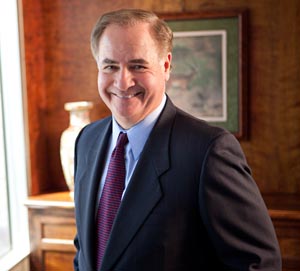By Janet Elliott, Staff Writer
janet.elliott@texaslawbook.net
AUSTIN (February 8) – The use of a Canadian safety group’s report in persuading a Dallas County jury to award $84 million to a man crushed by a rolling U-Haul truck was the focus of arguments today at the Texas Supreme Court.
The 2008 award by a six-person Dallas County jury was the fifth largest verdict in the nation that year, according to Dunn & Bradstreet. The Canadian report was extremely harmful and “the turning point in the case,” said David Keltner, who represents the truck rental company.
In addition to whether the Canadian evidence was proper, the case of U-Haul v. Talmadge Waldrip could change the standard for gross negligence and have far-reaching implications for employers who hire inexperienced employees, the Texas Civil Justice League says in an amicus brief.
Waldrip was hospitalized for eight months with massive injuries after the 26-foot, 12,000 pound truck rolled over him in September 2006 as he was exiting the truck. He has had numerous surgeries and remains bedridden.
Several previous renters had complained about the vehicle, which was found to have an inoperable parking brake caused by leaking transmission fluid. After the truck was used to haul band equipment to a high school football game, students dubbed it “the Titanic,” said Ted Lyon, who represents Waldrip.

“This truck was horrible. Underneath it was covered in grease,” Lyon said.
Waldrip and his family sued U-Haul International, the company’s Texas franchise and its contract dealer. The jury found all three companies negligent by failing to inspect and maintain the truck’s brake system and transmission properly. Jurors also found U-Haul International and the Texas franchise grossly negligent.
The trial court judgment awarded almost $45.7 million in actual and exemplary damages. The 5th Court of Appeals in Dallas reversed the gross negligence finding against U-Haul International and reduced the award by $11.7 million.
A key issue in U-Haul’s appeal is whether a Canadian consumer safety group’s report was relevant evidence or hearsay.
“Courts cannot impose liability on the basis of dissimilar acts in other states, much less other countries,” said Keltner, a partner in Fort Worth’s Kelly Hart & Hallman.
The president of the Ontario Safety League testified that half of 30 trucks the group inspected had brake problems, and that three of those specifically involved the parking brake. He cited those results and unspecified Canadian government tests on 1,400 trucks as evidence of U-Haul’s systematic disregard for public safety in the maintenance of vehicles.
 Keltner said the Canadian evidence failed to meet requirements that it be substantially similar to the issues in the trial, a standard the Supreme Court adopted in 2004’s Nissan Motor Co. v. Armstrong.
Keltner said the Canadian evidence failed to meet requirements that it be substantially similar to the issues in the trial, a standard the Supreme Court adopted in 2004’s Nissan Motor Co. v. Armstrong.
Tom Leatherbury, who also argued for U-Haul, said the president of the Canadian group had not personally conducted the inspections and had no personal knowledge of the truck rental company’s maintenance policies.
“It is vague hearsay testimony. It is standardless testimony. It is impossible knowing what is really going on with the Canadian testimony,” said Leatherbury, a partner in the Dallas office of Vinson & Elkins.
 Lyon said the Canadian evidence was used to impeach a top U-Haul official who testified that the company’s safety record is “10 out of 10.”
Lyon said the Canadian evidence was used to impeach a top U-Haul official who testified that the company’s safety record is “10 out of 10.”
Justice Dale Wainwright asked whether lawyers, no matter which side they represent, should be concerned about “showing that something bad happened in one country proves something bad happened — in this instance — in this state.”
Lyon said many trucks, including the one that injured Waldrip, were used both Canada and the United States.
“When you are maintaining a fleet of trucks and it’s all the same, poor maintenance in one area is relevant to another area,” said Lyon, of Mesquite’s Ted B. Lyon and Associates. He said reports by newspapers in Toronto and Los Angeles exposed deficiencies in U-Haul’s maintenance practices.
Waldrip is asking that exemplary damages against U-Haul International be reinstated.
U-Haul lawyers agreed that if the court finds the Canadian report shouldn’t have been used, the case would have to be re-tried. Chief Justice Wallace Jefferson wondered how the outcome of a new trial would be different given the other evidence against the company.
In addition to previous renters who said the truck rolled after being parked, the case focused on U-Haul’s hiring of a manager with no mechanical experience to perform vehicle inspections. The Dallas Court of Appeals said the gross negligence finding was supported by the manager’s lack of experience.
U-Haul said that the inspections performed by the manager did not involve dissembling the truck. The truck had passed a series of inspections, road tests and safety certifications in the year before the accident.
In its brief, the Texas Civil Justice League said the court of appeals decision would “subject Texas employers of all types and sizes to punitive damages for mere negligent hiring and have a significant chilling effect on employment opportunities for Texans.”
George S. Christian, president of the Civil Justice League, said in the brief that there is no evidence that the manager acted beyond his scope of employment or the training he completed.

Leave a Reply
You must be logged in to post a comment.